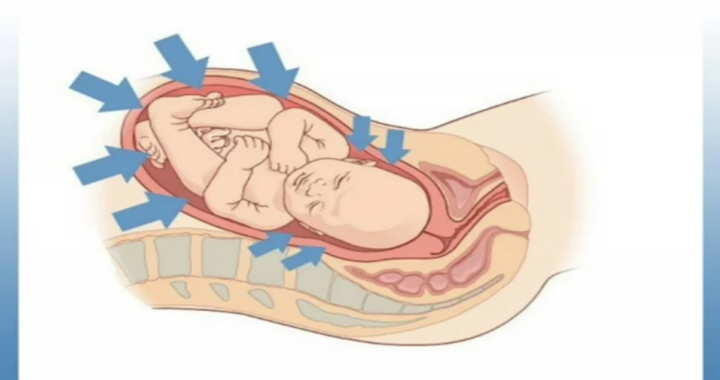How Lifestyle Changes Can Mitigate the Most Common Women’s Health Issues

Women’s health is multidimensional beyond medical interventions and doctor’s visits. It’s about a holistic approach to life that addresses physical, emotional, and mental well-being. Throughout different stages of life, women face a myriad of health challenges, from hormonal fluctuations and stress-related disorders to chronic illnesses and reproductive health concerns. Women can significantly reduce their risk for many common health issues by making deliberate and sustainable lifestyle changes. This piece explores the profound impact of these changes and how they help build resilience against Women’s Health Issues.
Nutrition: Taking the Middle Road to Health
A correct diet is one of the most essential preventive measures that women can take regarding their health. A balanced diet is the foundation on which one can build a healthy weight and hormonal balance and prevent diseases such as diabetes, heart disease, and osteoporosis. Whole foods such as fruits, vegetables, whole grains, lean proteins, and healthy fats should be taken in everyday meals as they provide the body with vitamins and minerals that can improve health.
Avoiding processed foods and cutting down on sugars also help regulate blood sugar and reduce inflammation, which is related to PCOS and heart disease. Some nutrients are very important for female health; for example, calcium and vitamin D are important for bone mass after the menopausal period. Caloric and nutrient-specific requirements for women mean that the food consumed can be adjusted to fit a woman’s stage of life while avoiding foods that may pose health risks.
Hydration is another factor that can be considered underestimated in today’s society. Water must be taken in sufficient quantities because it supports digestion, stabilizes body temperature, and increases mood and energy. Just a water intake pattern can help with weight loss, kidney function, and skin health, which are affected by hormonal changes or stress-related diseases.
Exercise as a Protector against Chronic Disease
Exercise is not only a means of controlling women’s size but also one of the best ways of preventing diseases that affect this sex. The study also shows that regular exercise lowers the chances of developing heart diseases, which are known to be among the major killers of women. Aerobic exercise of moderate intensity, including at least 150 minutes of exercise per week, can improve the heart muscles, reduce cholesterol, and control high blood pressure.

Apart from the heart, other exercises such as strength exercises and yoga are crucial in preventing bone frailness and possible osteoporosis. This is especially so when women are aging and experiencing low levels of estrogen that raise the risks of fractures and bone loss. Exercise also has the positive side effect of increasing endorphin levels, which can dramatically enhance one’s mental health, decreasing signs of anxiety and depression, illnesses that affect women most of the time.
Stress Management and Sleep for Enhanced Health Status
This paper established that stress management is essential but neglected in preventing women’s health problems. Chronic stress increases the risk of developing heart diseases, obesity, digestive system disorders, and even reproductive diseases. Meditation, deep breathing, journaling, or engaging in some hobbies decrease cortisol levels within the body and, therefore, help women reduce stress to improve mental and physical health.
Another aspect of lifestyle is sleep: people should get enough sleep. Most working women are caught up in their work, family, and social duties, and sleep is always the last thing on their minds. Lack of sleep has been known to affect hormone regulation, cause immune system compromise, and lead to increased weight. Paying much attention to sleep hygiene, which includes getting to bed at the same time and sleeping for about 7-9 hours, helps the body to restore normalcy by fixing the hormones and preventing chronic diseases.
Building Strong Support Systems and Seeking Professional Guidance
Lifestyle modifications are more effective if a sound social support system is provided. Making acquaintances with friends and family or joining groups focusing on health can help women continue their well-being goals. From a group exercise session to nutritional seminars or a depression support group, it is less lonely and more fulfilling to hear from others who are going through the same process.

Another critical point is professional advice. Consulting registered dietitians, fitness trainers, mental health professionals, and physicians guarantees that the changes made in the patients’ lifestyles are well-researched and suitable to their needs. Women need to have check-ups and talk to their doctors often so that they can know how they are doing and probably change something if need be.
Regular health checkups play a crucial role in maintaining overall wellness. These visits help in the early detection of potential health issues, allowing for timely intervention and treatment. According to this dentist in Lexington MA, regular screenings and assessments can also provide valuable insights into one’s health status, offering peace of mind and promoting a proactive approach to health management.
Conclusion
This means that people must understand that improving their lifestyle is a process, not an event. Stress, exercise, balanced diet, and sleep are the four S’s that women need to embrace to avoid most diseases. Accompanied by strengthened support and expert direction, these modifications allow women to make decisions about their well-being and improve their health. Health is not something that is achieved once and for all; it is a process that continues throughout the entire lifetime; however, by having a proper approach to health, women will be able to cope with it and with all the problems that might occur during this beautiful process.

 Hiking for Mental Health: The Healing Power of Trails
Hiking for Mental Health: The Healing Power of Trails  Diet vs. Lifestyle Change: Knowing the Difference
Diet vs. Lifestyle Change: Knowing the Difference  Sleep Like a Pro: 10 Tips Backed by Science for a Restful Night
Sleep Like a Pro: 10 Tips Backed by Science for a Restful Night  How 7Stax 7-OHMZ Tablets Support Mental Health: 7 Key Benefits
How 7Stax 7-OHMZ Tablets Support Mental Health: 7 Key Benefits  The Complications That Could Arise From Using Cytotec to Induce Labor
The Complications That Could Arise From Using Cytotec to Induce Labor  The Impact of Workplace Stress on Anxiety and Depression
The Impact of Workplace Stress on Anxiety and Depression